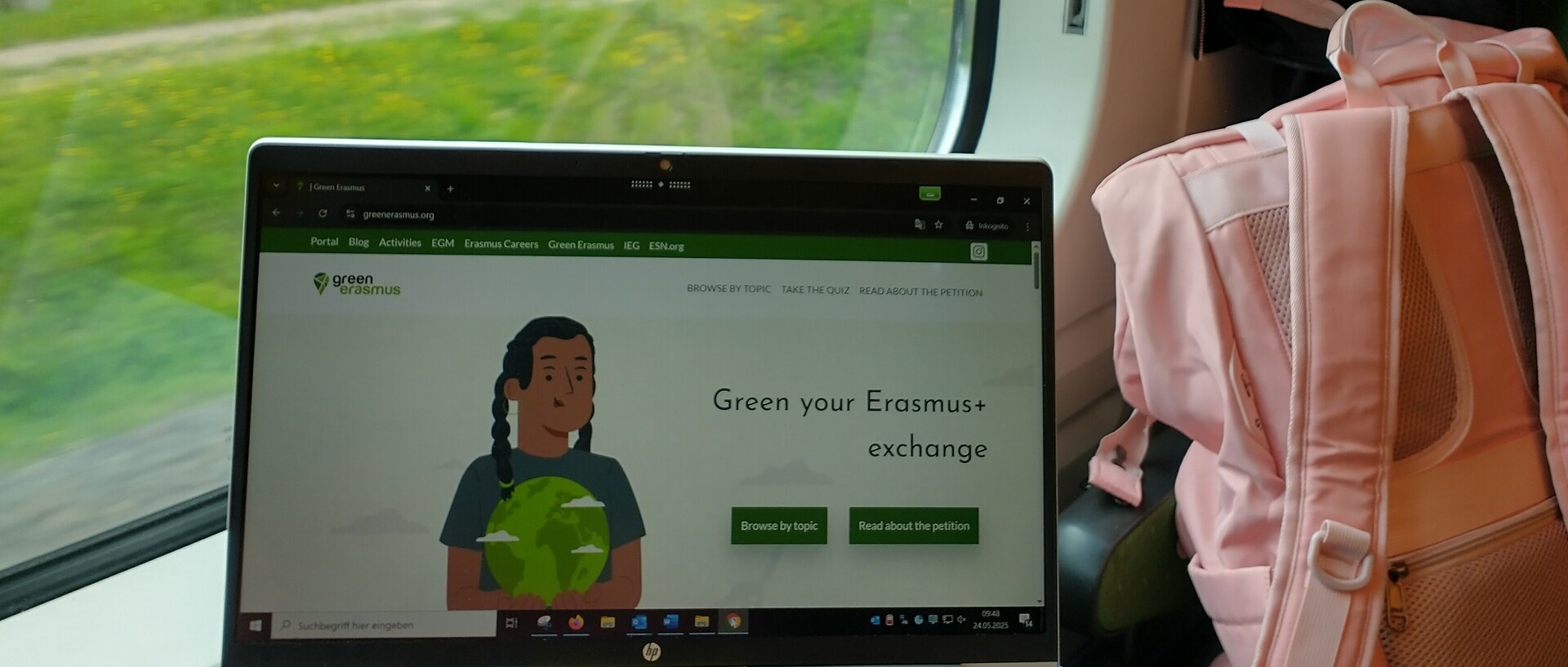Sustainability Abroad
Studying abroad is the perfect opportunity to discover new countries—but how can you do so in an environmentally friendly way? From train travel and conscious consumption to sustainable accommodation, following a few simple tips will help you enjoy your adventure abroad while taking care of the environment.
Traveling to and within foreign countries
- Travel by sustainable means of transport such as train, bicycle, bus, or carpooling. Even for more distant destinations, it is often possible to cover part of the journey by train.
- Take advantage of the financial support for green travel and the Interrail Pass for Erasmus students
- Take only as much luggage as you really need and try to limit your purchases while abroad. You can find tips on making your luggage as sustainable as possible on the Green Erasmus website. If needed, SendMyBag may be helpful.
- Back on Track provides an overview of Europe's night trains.
- Chronotrains and Seat61 can be helpful when planing a trip by train.
- If you have a free room or apartment while staying abroad, make it available through the University of Mannheim’s online private accommodation service. This will enable incoming students to also make their time in Mannheim as sustainable as possible.
Sustainable living around the world
- Buy local or second-hand products whenever possible.
- Reduce your consumption of animal products (e.g., meat, fish, poultry, dairy products, etc.).
- Try to buy unpackaged goods whenever possible.
- Use reusable beverage containers, cutlery, napkins, etc. when you are on the go.
- Let your laundry air dry instead of using a dryer.
- Separate your household waste into the appropriate bins. Find out from your local waste disposal authority how to do this properly.
- Donate or give away what you do not need.
- Only take short showers.
- Use reusable shopping bags – even in countries where this is not common practice.
- Take part in local initiatives, such as litter collection campaigns.
Special information for students participating in the Erasmus program
In addition to fostering international exchange through in-person encounters, the Erasmus+ program also encourages participants to choose environmentally friendly modes of transportation. Therefore the use of sustainable transportation is particularly encouraged through additional financial support.
Erasmus students at the University of Mannheim will automatically receive detailed information on how to apply for the “Green Travel” grant together with their Erasmus scholarship agreement.
Further resources and tips are also available from the Green Erasmus project.
Interrail-Pass for Erasmus students:
The Interrail Pass for Erasmus+ is a six-month pass for European trains, developed in cooperation between Eurail and the European Student Network (ESN) specifically for participants in the Erasmus+ program. Thanks to its six-month validity, most Erasmus students can use the pass for both their outward and return journeys. There are two types of passes available:
- Four travel days within six months of the start date
- Six travel days within six months of the start date
Participants can use the pass flexibly: to travel to and from their host country in an environmentally friendly way, but also to further explore their host country or visit neighboring countries during their trip or stay.
More resources
- On the Erasmus Goes Green website, you can check out your carbon footprint.
- On the website of the European university alliance ENGAGE.EU, you can find practical information about travel options and accommodation.
- Read The Lazy Person’s Guide to Saving the World to find out how you can do your bit without much effort.
- Also interesting: Imagine for 1 minute the world you want
- Sustainability certificate: Studium Oecologicum at the University of Mannheim
- Sustainability at the University of Mannheim

I traveled by train for my study abroad in Sheffield, England, and I haven't regretted it for a second. I took the ICE from Mannheim to Paris, then the Eurostar to London, and finally the train to Sheffield—all in just 10 hours. Despite the long distance, it was really pleasant and easy to use sustainable means of transport, and the time flew by. Compared to flying, there was no significant difference in price or overall travel time, so the environmental aspect outweighed other considerations for me—especially when the rail network in Europe offers so many possibilities.
